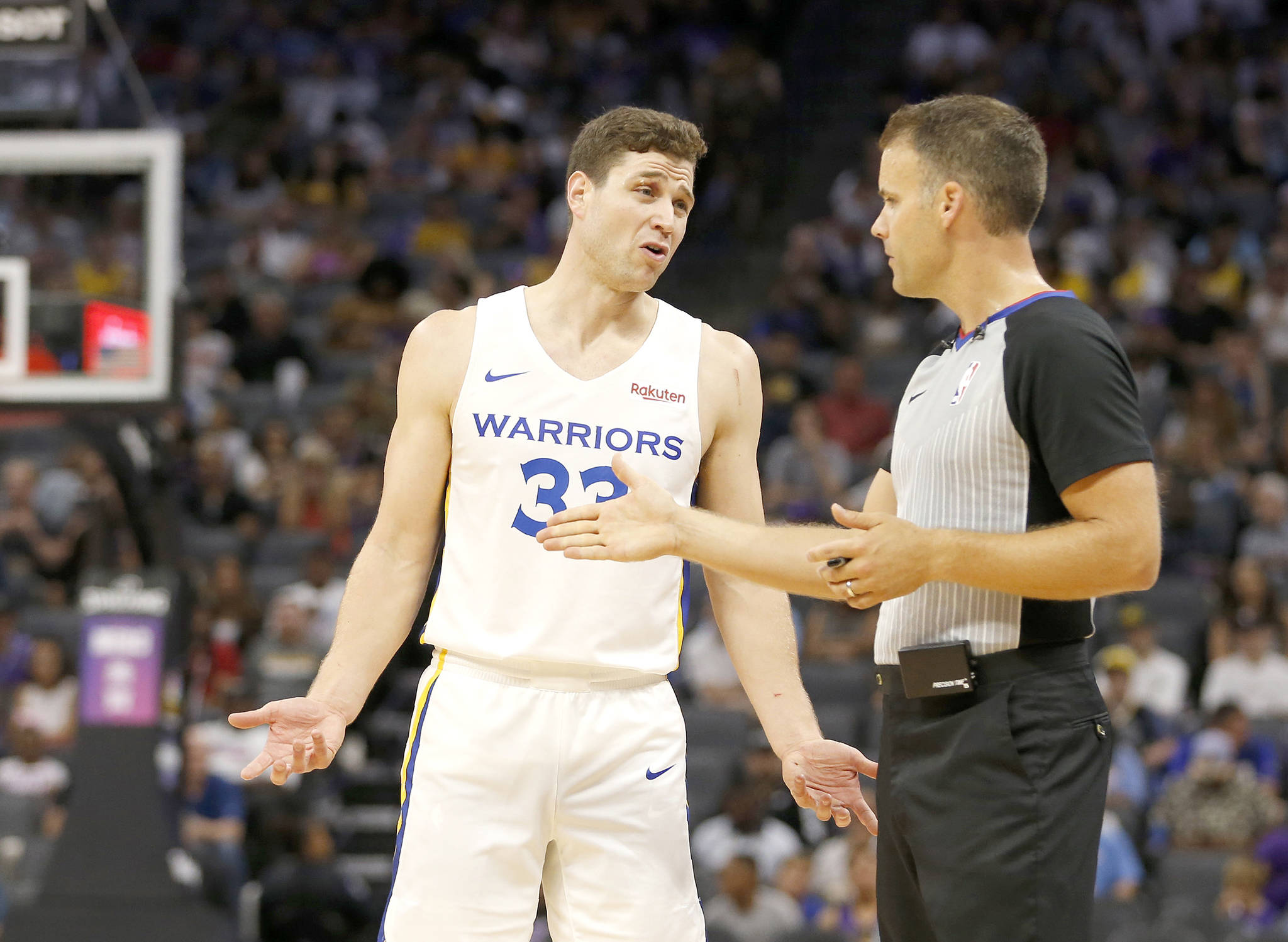PORT ANGELES — Longtime NBA referee Bernie Fryer is likely to be remembered more for the reaction to a call he missed than any correct call he ever made.
Fryer, the Port Angeles High School and Peninsula College product who went on to become the first NBA player from the North Olympic Peninsula and the first former player to officiate in the league, will join the State of Washington Sports Hall of Fame when he’s inducted prior to a Seattle Mariner game Aug. 26.
He worked thousands of regular season contests, numerous playoff series and two NBA Finals in his career.
He later served as the league’s director of officiating in the wake of former NBA referee Tim Donaghy’s allegations of fixing NBA games, helping to restore integrity to the league as a whole.
But Fryer also took his lumps on occasion on the court.
His decision to waive off an apparent Baron Davis game-winning 3-point attempt during a Charlotte Hornets-Orlando Magic playoff series in 2002 is what many consider the impetus for the NBA’s implementation of instant replay the next season.
Yeah, you can blame Bernie for instant replay in pro basketball.
Even the guy who used to sign his paycheck does.
“[Former NBA Commissioner] David [Stern] does blame me for replay,” Fryer laughed during a recent interview.
Fryer said refs would train during summer league for last-second shots with a stopwatch, timing a number of potential outcomes.
“We would time how long it takes to catch the ball and shoot the ball or catch, pump and turn or to just tap the ball,” Fryer said.
“We counted an automatic 0.3 seconds to get it off, so when Baron catches the ball and turns and shoots, I’m thinking, ‘No freaking way that was in time.’ And Murphy’s Law — it goes in and I’m waving it off and I’m thinking, ‘Oh, boy, that’s really close. Count it and the game’s over, don’t count it and it’s overtime.’
“I got really lucky that Baron’s team won the game in overtime. They had to win it twice — the shot was good. If they lost I would have really heard about it, although I was still the goat on ESPN for about a week, anyway.”
Fryer said refs are happy to have replay as a check and balance on their decision making.
“It’s better to have it now. We want the right calls to be made, we want the right teams to win,” Fryer said.
“It becomes a matter of not using it like a crutch and avoiding slowing the game down with too many replay reviews.”
That could be complicated beginning this fall when the NBA adds two new instant replay rules, including a Coach’s Challenge to trigger review of a limited set of matters.
Coaches may challenge a personal foul charged to their team, a called out-of-bounds violation, a goaltending violation or a basket-interference violation. No other call may be challenged.
The second change enables the NBA Replay Center (in addition to the on-court referees) to trigger instant replay in certain circumstances.
“Down in Las Vegas, they tried out the new coaches’ challenge during the summer league. That’s something where the league has to be very cautious of because the NBA is aware of the length of games. Good referees keep the game moving. If refs called every little bit of action and contact to the letter of the law the fans will be sleeping in the arenas.”
Fryer said the introduction of replay coincided with the rise of the analytics era in basketball.
“What it did was increase the scrutiny,” Fryer said. “Every call and non-call is charted now by NBA people. Nothing is missed, all calls are logged and the league can put a number on refs statistically.”
Fryer said league refs are evaluated after each game.
“Every game they ref is seen and scrutinized and it either meets, exceeds or does not meet standards. That’s the grading structure. There are about 75 referees and they are rated 1-75 by coaches, general managers, former referees and the league’s data people and that’s how playoff series [referees] are decided.”
Refereeing can be a lucrative career path — although statistically it’s harder to become a ref than an NBA player.
Fyer estimated that first-year referees make a $180K salary each season.
“Referees are part of a union and that’s all collectively bargained,” Fryer said.
“Every year you ref you raise a stair step up [the salary ladder]. Playoffs are paid by the round, so if you work one game in a series or four games, you get the same amount.”
He had words of encouragement for potential referees.
“You’ve got to have a thick skin and not let small stuff bother you,” Fryer said. “You are going to hear stuff, so having a high level of concentration is important plus knowing the rules and taking the job seriously. We give rules tests all the time. if you are going to be a sports official you can’t just go out there on a whim, you have to take it seriously.
“It’s a nice way to pick up pocket change, get exercise and be involved in sports. If that intrigues you, it is very exciting and very rewarding, even when you know you can try to get every call right but understand that you can’t. That is the rush you get out of officiating. That would be the draw.”
________
Sports reporter/columnist Michael Carman can be contacted at 360-417-3525 or mcarman@peninsuladailynews.com.

